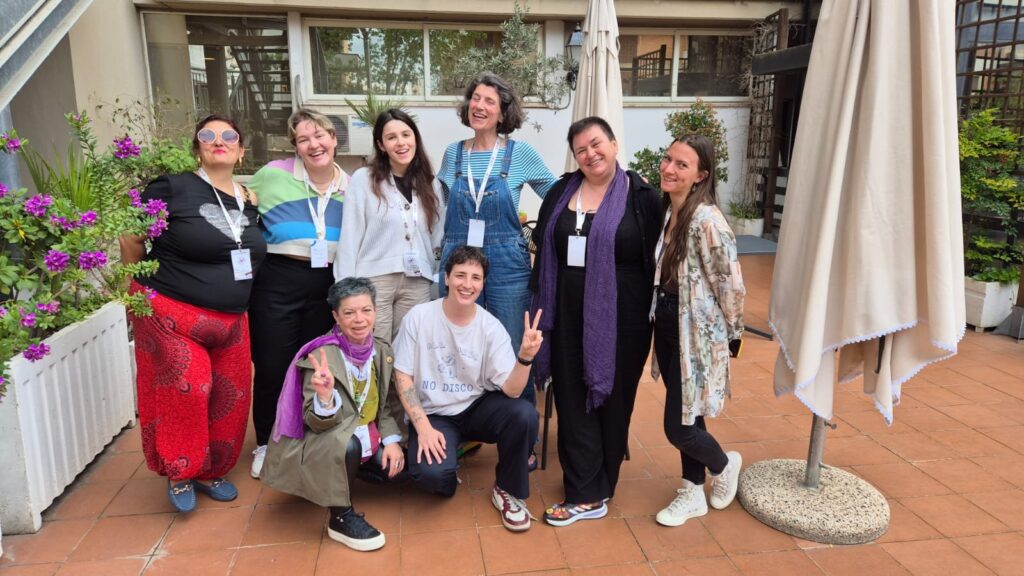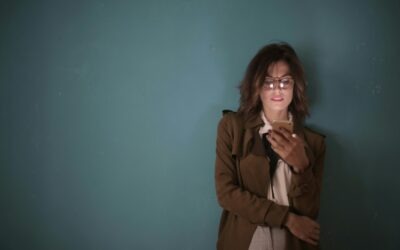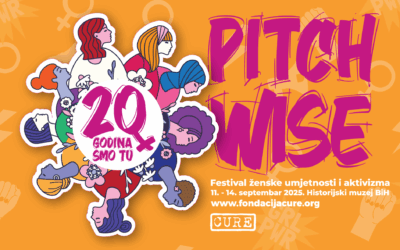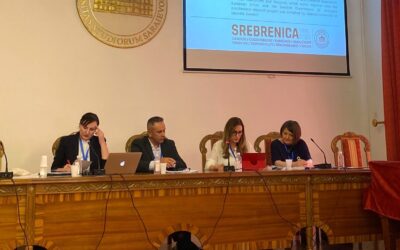The Fourth EuroCentralAsian Lesbian* Community (EL*C) Conference took place in Rome (Italy) from 23rd to 26th April 2025, gathering over 750 women from across Europe and Central Asia. Among the participants were representatives of the CURE Foundation – Jadranka Miličević and Selma Hadžihalilović.
The conference brought together women of all generations and diverse gender, sex, sexual, and social identities, as well as various activist backgrounds. Alongside human rights defenders, through solidarity and activism, participants celebrated the strength and unity of the community in the fight for lesbian rights.
In the words of the organisers:
“The EL*C conference prioritises LBTQIA+, non-binary, trans and cis women and people with a diversity of backgrounds and experiences.”
The conference provided a safe space for lesbians to articulate their political ideas, among other things, and to strengthen the European lesbian movement. Over three intensive working days, through plenary discussions, parallel panels, safe-space workshops, and film screenings, participants explored numerous contemporary feminist topics – from intersectionality and the distribution of power and resources, to the needs and current challenges faced by lesbians in LGBT organisations. Topics also included tools for social change, media representation, and empowering lesbians through culture. The workshops addressed practical topics such as lesbian relationships, motherhood, coming out processes, mental health, intimate partner violence, economic struggles, displacement, and the lived realities of lesbians across various parts of Europe and Central Asia.
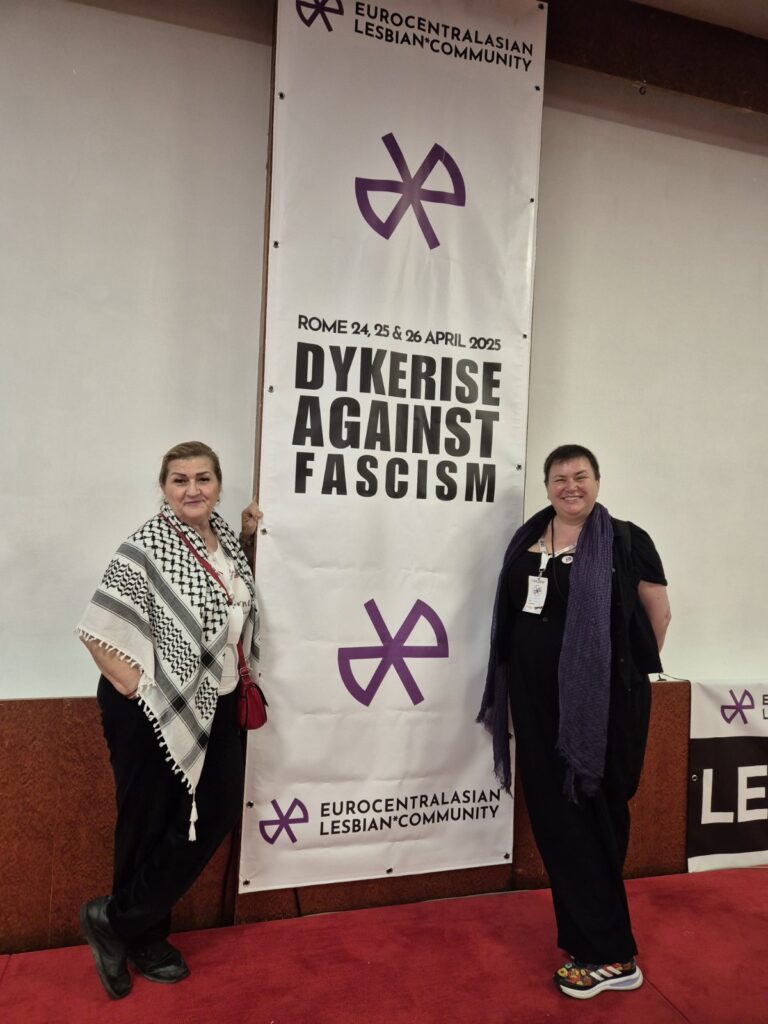
The opening ceremony featured speeches by representatives of the city authorities of Rome, the conference organisers, representatives of lesbian organisations, and Lucia Plaváková, a member of the Slovak Parliament, who shared her personal story of resisting homophobic attacks throughout her political journey. The organisers later wrote on their social media that Lucia had delivered “a moving testimony that reminded us why it’s crucial to claim spaces where lesbians are still not expected – particularly in political arenas where human rights are intensely scrutinised.”
The first working day began with a plenary session on lesbian legends and continued with 15 parallel panels, addressing topics such as lesbian politicians, trans lesbians, fundraising, lesbian festivals, ecofeminism, lesbian and queer feminism, fairy tales, lesbophobia, and anti-gender mobilisation. Selma Hadžihalilović, a feminist, activist, and member of the CURE Foundation, spoke on the panel titled “Lesbian Festivals: Sparks of Power and Social Influence” about 20 years of the PitchWise Festival of Women’s Art and Activism – its impact on community building and fostering, and the development of feminist, women’s, and queer cultural scenes in Bosnia and Herzegovina. She spoke about how PitchWise is both a celebration of women’s solidarity and unity, and a space of resistance against oppressive societal and political tendencies.
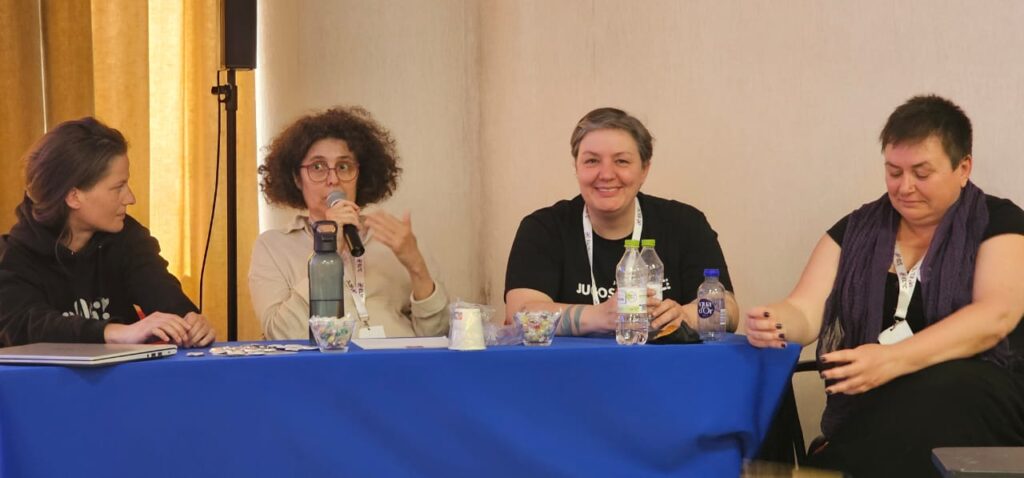
In one of the workshops, members of the CURE Foundation presented the project “Community Response to Gender-Based Violence”, funded by the EuroCentralAsian Lesbian* Community through the European Union’s DAPHNE programme. The project runs from September 2024 to September 2025, with the goal of strengthening community responses to gender-based violence by building the capacities of LGBTIQ+ women and non-binary persons in Bosnia and Herzegovina – empowering them to provide information, protection, and support to survivors of violence who choose to report it.
The following two working days followed the same concept – morning plenary sessions on current issues, followed by 15 parallel panel discussions and workshops, and cultural and film programmes in the evenings. More than 46 parallel sessions were held on a wide range of topics – from discussions on lesbian roots, resistance and justice, to the experiences of bisexual women in the lesbian movement, fundraising, advocacy toward EU institutions, confronting the far right, peace activism, protest, and resistance strategies.
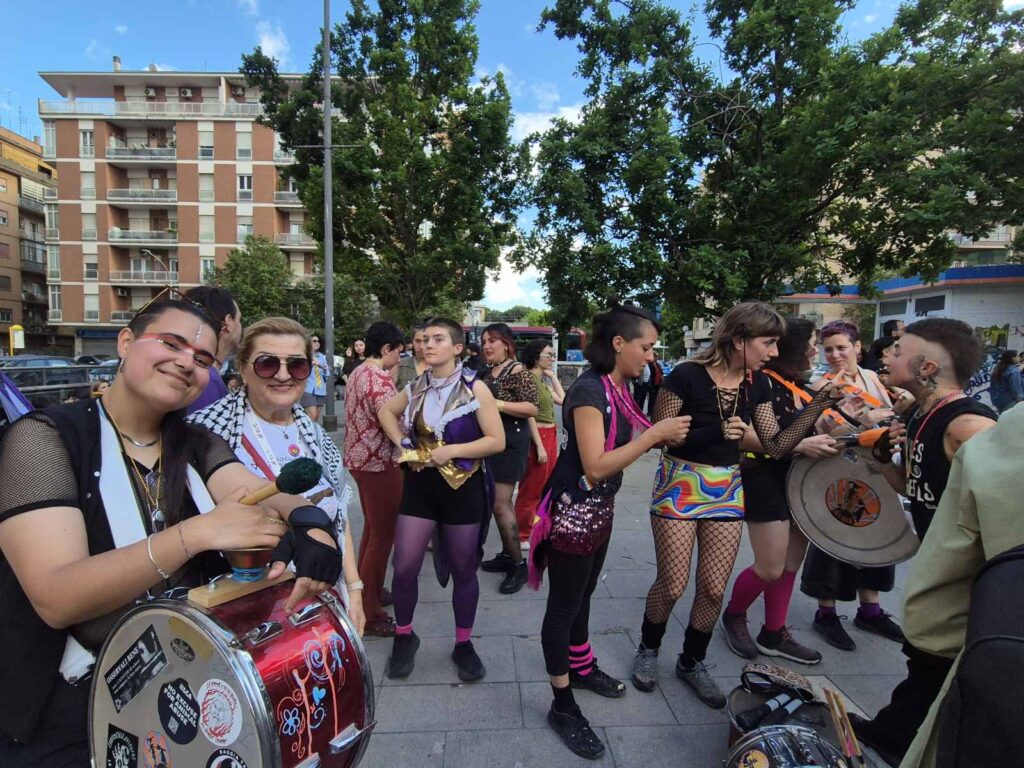
The final day of the conference was, like all the previous ones, magnificent. As part of the programme, the first-ever lesbian march in Rome – and in Italy – was held on 26th April, marking the International Lesbian Visibility Day. The march was the perfect way to celebrate visibility, power, togetherness, and resistance to all politics, mobilisations, and actions aimed at halting emancipation, dismantling democratic processes, and taking away our freedoms.
